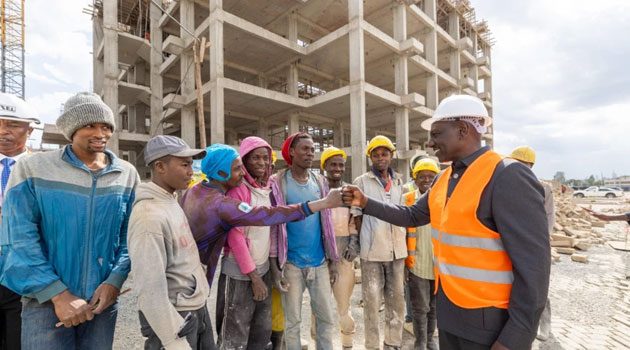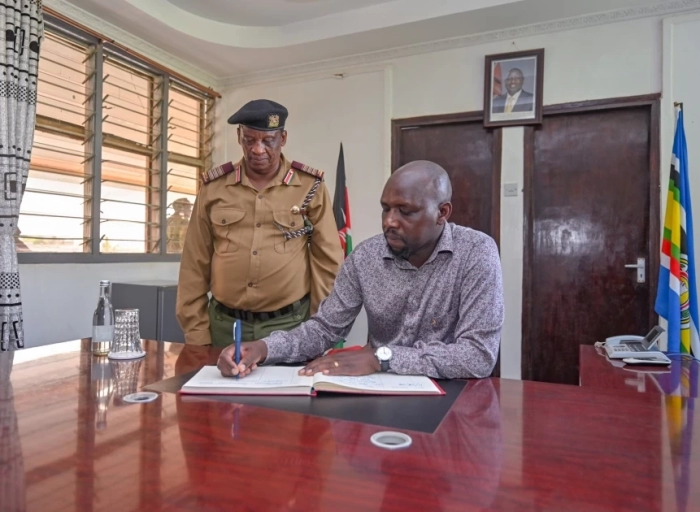President William Ruto’s latest initiative to absorb 4,000 young professionals into the Affordable Housing Programme is once again stirring debate about the credibility of his administration’s job creation promises.
Speaking at State House during the launch of the Affordable Housing Internship Programme on Tuesday, the President reaffirmed his commitment to using the housing agenda as a cornerstone for youth employment. The programme aims to onboard graduates from universities and TVET institutions in areas such as engineering, architecture, law, quantity surveying, accounting, and emerging fields like AI and digital marketing.
“We want to bring on board another 4,000 professionals to scale up the level of supervision and accelerate the work we want to achieve,” said Ruto, positioning the move as a sign of progress and delivery.
Since 2023, the President has frequently cited impressive job creation figures tied to the housing initiative—140,000 jobs in October 2024, 164,000 by November, and 200,000 by December. While these numbers may sound encouraging, they face growing scrutiny.
Jobs on Paper vs. Reality on the Ground
According to the 2025 Economic Survey, the construction sector—where most housing-related employment is concentrated—lost 2,900 jobs between 2023 and 2024. Employment fell from 226,300 to 223,400, contradicting the narrative of a booming job market fueled by affordable housing.
Moreover, although thousands of housing units have been launched, fact-checkers report that only about 1,200 had been completed by the end of 2024. These figures raise questions about the scale and substance of the job creation claims.
Skepticism Grows Amid Economic Pressures
While Ruto insists that housing firms are overwhelmed and in urgent need of professional capacity, critics argue that the initiative risks becoming more of a PR exercise than a long-term employment solution. Concerns have also been raised about the sustainability and verification of the jobs being promised.
“How many of these jobs are sustainable? How many are verifiable? And how many will still exist once the cameras leave?” ask many Kenyans grappling with rising unemployment and economic uncertainty.
Despite the skepticism, the President remains optimistic. He pledged quicker project delivery timelines and a structured mentorship model to help interns acquire practical, market-ready skills.
“We believe what could be done in two years, we can now do in one,” Ruto said, urging professional bodies to support the youth-focused initiative.
As the debate continues, one thing is clear: the Affordable Housing Programme has become both a symbol of hope and a lightning rod for criticism in the wider conversation about jobs, governance, and accountability in Kenya.




